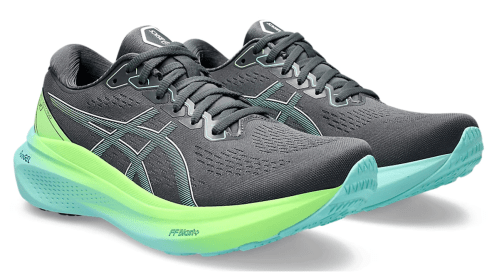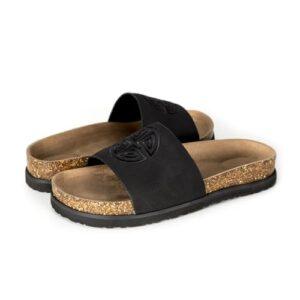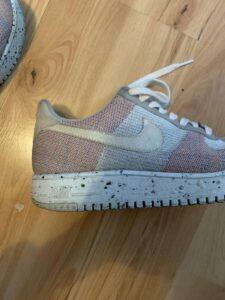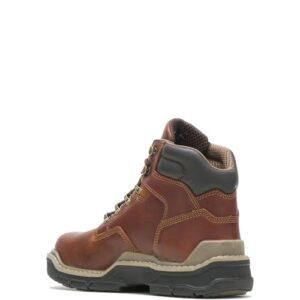Have you ever wondered if the sneakers you wear every day could be the reason behind your knee pain? It’s easy to blame aging or injury, but sometimes the shoes on your feet play a bigger role than you think.
If your knees ache after a long walk or workout, the wrong sneakers might be putting extra stress on your joints. You’ll discover how your choice of sneakers can affect your knees and what to look for to keep your knees healthy and pain-free.
Keep reading—you might find the simple fix you’ve been searching for.
How Sneakers Affect Your Knees
Sneakerswith good cushioninghelp absorb shock. This reduces stress on your knees. Shoes with poor cushioning can cause more knee pain. Supportis also key. Sneakers that hold your feet well keep your knees aligned. Misalignment can lead to pain over time.
Feet come in different shapes. Arch typesplay a big role in knee comfort. People with flat feet may need extra support. High arches require more cushioning. Wearing wrong shoes for your arch type can hurt your knees.
Old sneakers lose cushioning and support. Wear and tearmeans less protection for knees. Using worn-out shoes can increase knee pain risk. Replacing sneakers regularly is important to keep knees safe.

Credit: bestlifeonline.com
Common Sneaker Issues Linked To Knee Pain
Inadequate shock absorptionin sneakers can cause knee pain. Shoes without good cushioning make your knees hit hard on the ground. This stress can lead to discomfort or injury over time.
Poor fit and alignmentalso affect knee health. Shoes that are too tight or too loose change how your foot lands. This misalignment puts extra pressure on your knees.
Lack of stability featuresmeans less control during movement. Sneakers without proper support allow your foot to roll inward or outward. This instability can strain knee joints and cause pain.
Signs Your Sneakers May Be Causing Pain
Increasing discomfort during activitycan mean your sneakers do not support your knees well. Pain may start small but grow worse as you walk or run more.
Swelling and stiffnessaround the knee after wearing sneakers is a clear sign of trouble. The shoes might be causing pressure or not absorbing shock properly.
Changes in walking or running patternshappen when your knees hurt. You might limp or move unevenly to avoid pain. This can lead to more knee problems.
Choosing Sneakers To Protect Your Knees
A proper fitis key to protecting your knees. Sneakers should feel snug but not tight. They must hold your feet firmly without squeezing. Shoes that are too loose can cause slipping and strain. Shoes too tight may hurt your toes and affect walking.
Features for knee supportinclude good cushioning and arch support. Cushions absorb shock and reduce pressure on knees. Arch support helps keep your feet stable. Look for sneakers with a firm heel counter to prevent wobbling.
Replacing sneakersis important to avoid knee pain. Old shoes lose their cushioning and support. Signs to replace include worn soles, creases, or discomfort. Generally, sneakers should be replaced every 300-500 miles or six months if used daily.
Alternatives And Additional Remedies
Orthotic insertscan help support your feet and reduce knee pain. They fit inside sneakers to improve foot alignmentand absorb shock. This can lower stress on your knees. Many people find relief using custom or over-the-counter inserts.
Strengthening exercisesfor your legs also help protect your knees. Focus on quadriceps, hamstrings, and calf muscles. Strong muscles support joints better. Simple exercises like squats, leg lifts, and calf raises work well. Regular practice can reduce pain and prevent injury.
Consulting a specialistis important if knee pain persists. Doctors or physical therapists can check your walking style and sneakers. They may suggest better shoes or special treatments. Early help can stop pain from getting worse.

Credit: parade.com

Credit: bestlifeonline.com
Frequently Asked Questions
Can Sneakers Cause Knee Pain?
Yes, poorly fitted or unsupportive sneakers can contribute to knee pain by affecting your gait and joint alignment. Proper cushioning and arch support are essential to reduce knee strain during walking or running.
How Do Sneakers Affect Knee Joint Health?
Sneakers with inadequate cushioning or support can increase impact forces on the knee joint. Proper footwear helps absorb shock and maintain correct leg alignment, reducing stress and preventing knee pain.
Are Certain Sneakers Better For Knee Pain Relief?
Yes, sneakers designed with good arch support, cushioning, and stability features can help alleviate knee pain. Look for shoes tailored to your foot type and activity level for optimal knee protection.
When Should I Replace My Sneakers To Protect Knees?
Replace sneakers every 300-500 miles or when cushioning and support wear out. Worn-out shoes lose shock absorption, increasing the risk of knee pain and injury.
Conclusion
Choosing the right sneakers matters for your knee health. Poor shoes can cause pain and discomfort. Support and cushioning reduce stress on your knees. Always pick sneakers that fit well and suit your activity. Pay attention to wear and replace old shoes regularly.
Taking care of your feet helps protect your knees. Small changes in footwear can make a big difference. Keep your knees happy by choosing sneakers wisely.

Madison Clark is a footwear expert and the voice behind MyStyleGrid.com. She specializes in honest shoe reviews, style tips, and practical guides to help readers find the perfect pair for any occasion. With years of experience in blogging and content creation, Madison makes footwear knowledge simple, stylish, and easy to follow.





